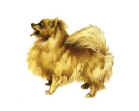|
 Home Home
 Photo Album Photo Album
 Why Adopt? Why Adopt?
 Adoption
Sites Adoption
Sites
 NDRC's Poll NDRC's Poll
 Puppy Mills Puppy Mills
 Are You Nuts
About Mutts? Are You Nuts
About Mutts?
 To Neuter or
Not to Neuter? To Neuter or
Not to Neuter?
 Breed Index Breed Index
 Link To Us! Link To Us!
 Canines
Online Canines
Online
 October: Adopt a Shelter
Dog Month October: Adopt a Shelter
Dog Month
 Dogs in the
Encyclopedia Dogs in the
Encyclopedia
 Dog Facts Dog Facts
 Ways
To Help When You Can't Adopt Ways
To Help When You Can't Adopt
 Awards I
Have Won Awards I
Have Won
 Win My Award Win My Award
 Award Winners Award Winners
 Sign My
Guestbook! Sign My
Guestbook!
 View My
Guestbook! View My
Guestbook!
 What Is Rescue? What Is Rescue?
 Your Dog's Age Your Dog's Age
 Quiz: Are You Ready For A Dog? Quiz: Are You Ready For A Dog?
 What is Your Dog Saying? What is Your Dog Saying?
 How to Choose the Right Dog How to Choose the Right Dog
 Preparing for your New Dog Preparing for your New Dog
 Supplies Supplies
 Books and Magazines Books and Magazines
 Taking Care of your Dog Taking Care of your Dog
 First Aid Supplies for your Dog First Aid Supplies for your Dog
 First Aid First Aid
 Toxic Plants for your Dog Toxic Plants for your Dog
 A Checklist for a Healthy Dog A Checklist for a Healthy Dog
 Warm and Cold Weather Suggestions Warm and Cold Weather Suggestions
 Dog Food Dog Food
 Recipes Recipes

Save a Stray
| |
 |
The Pomeranian is a lively little dog. Intelligent, eager to
learn, very loyal to its handler and family. Willful, bold and sometimes temperamental. |
| Breed: |
Pomeranian |
| Country of Origin: |
Pomerania |
| AKC Group: |
Toy |
| Function: |
Companion |
| Life Span: |
15 years |
| Appearance: |
Small |
| Color: |
Red, orange, white or cream, blue, brown or black. |
| Coat Type: |
Fluffy |
| Grooming: |
The Pomeranian's very long, double coat should be
brushed frequently. If you work from the head, parting the coat and brushing it forward,
it will fall neatly back in place, so the task, although time-consuming, is relatively
easy. The cottony undercoat is shed once or twice a year. Dry shampoo when necessary.
Clean the eyes and ears daily and take the dog for regular dental checkups. |
| Height: |
7-12 inches |
| Weight: |
3-7 pounds |
| Activity Level: |
High |
| Watch Dog: |
No |
| Protection: |
No |
| Intelligence: |
High |
| Trainability: |
High |
| Good With Children: |
Older |
| Good With Pets: |
Yes |
| Good With Strangers: |
May bark |
| Character: |
Outgoing |
| Home Environment: |
Apartment ok |
| Best Owner: |
Lively |
| Potential Problems: |
|
| Behavior: |
|
| Physical: |
Some blood lines are prone to slipped stifle,
dislocated patella, heart and skin problems, and eye infections. Since they are prone to
early tooth loss, feeding dry food is recommended to keep the teeth and gums in good
condition. Be sure the veterinarian also keeps the dog's teeth clean. Newborn pups are
rather tiny and fragile. Three newborns can be held in the palm of ones hand. Small
females often need cesarean sections deliveries. When the dog is old it may become molted
with bald spots. Visit Healthypets.com for reasonably priced heath care products. |
| Recommendations: |
|
|

![]()